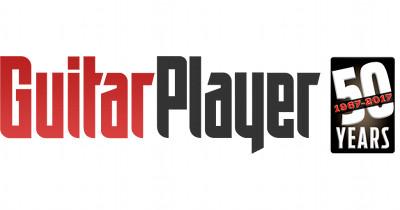 Concert-sized and dreadnought acoustic guitars offer an orchestral range of tones in solo performance, but their rich bass can muddy up a band’s sound or require being EQ’d...
Concert-sized and dreadnought acoustic guitars offer an orchestral range of tones in solo performance, but their rich bass can muddy up a band’s sound or require being EQ’d...
Concert-sized and dreadnought acoustic guitars offer an orchestral range of tones in solo performance, but their rich bass can muddy up a band’s sound or require being EQ’d out of an ensemble recording. One reason I have played and recorded with a parlor-sized Art & Lutherie Ami for years is its ability to surgically cut through bass, drums, keyboards, and electric guitars. The company has discontinued the Ami, but has fortunately replaced it with the similar-sized and improved Roadhouse model.
Art & Lutherie is a division of Godin Guitars, a Canadian company set in the same forest that provides much of the wood for their instruments. This allows them to offer the Roadhouse at a price well below what you might expect for an instrument with a solid spruce top and laminated wild cherry back and sides, Unpacking the Roadhouse, I discovered it immediately raises the Ami’s game thanks to better tuners and a built-in pickup. I was also impressed by the appearance: The matte-black finish with a little grain showing through implies business, while the pearloid pickguard adds a touch of showmanship. Though it exudes all the cool of a pawnshop prize, there was nothing cheap about the way the Roadhouse played. As with many Godin acoustic products, it offered the fingering ease of a well-set-up electric guitar: low action with no buzz or fretting out.
Despite the low action, the instrument rang out in a way that belied its size. As with most parlor guitars, the Roadhouse’s sound is focused in the midrange, but far from honky. You might miss some of the sweet high-end of a much more expensive vintage version, but the frequencies were very even within the instrument’s range. When jamming acoustically with another guitarist playing a dreadnought, the differentiation of the Roadhouse tone helped